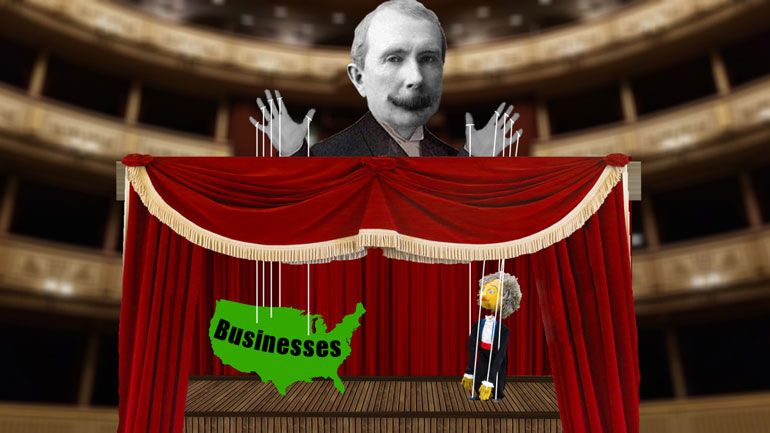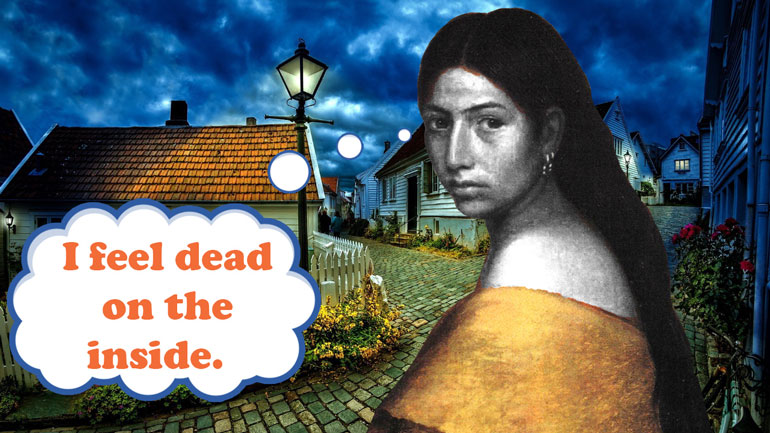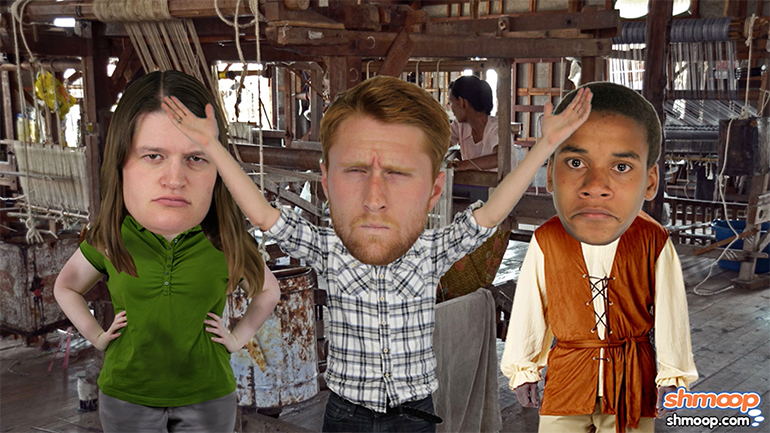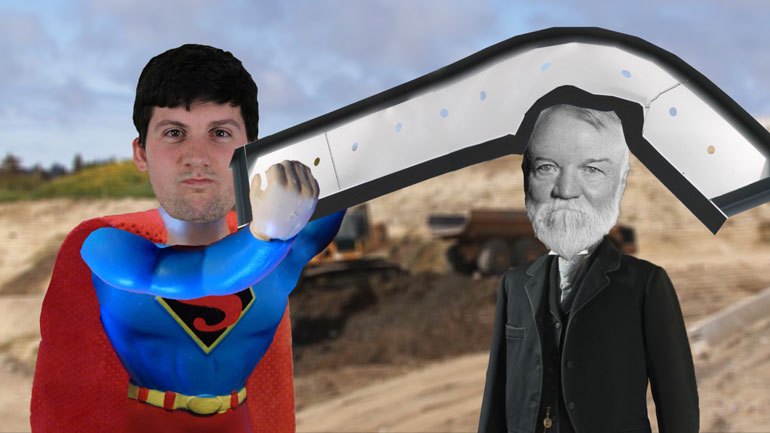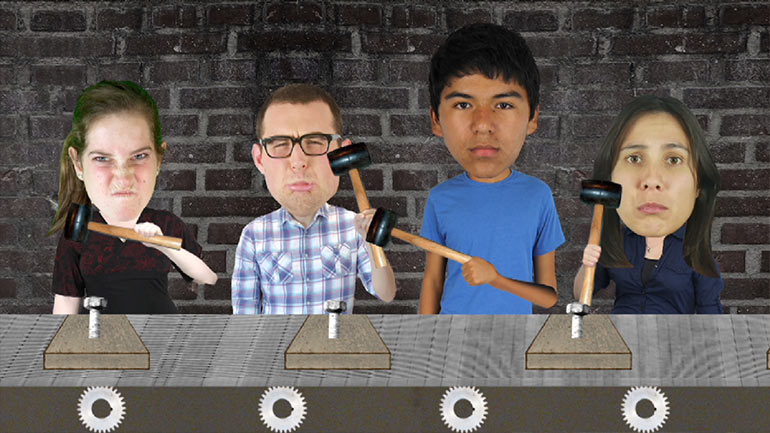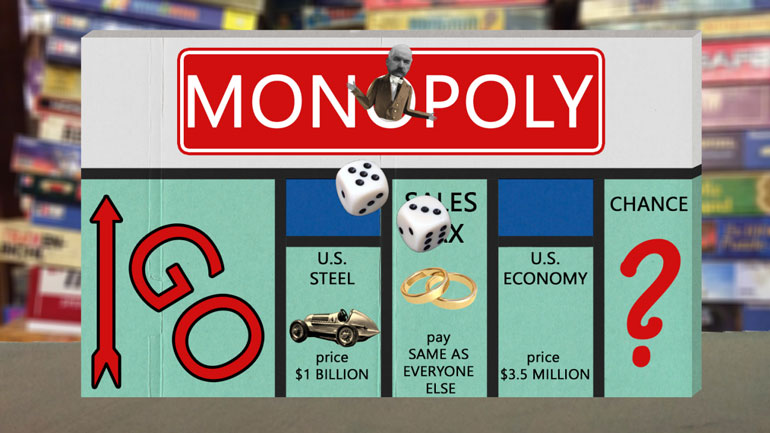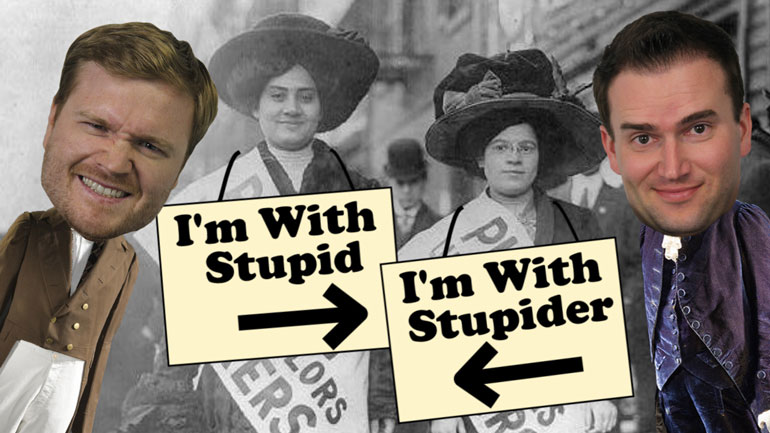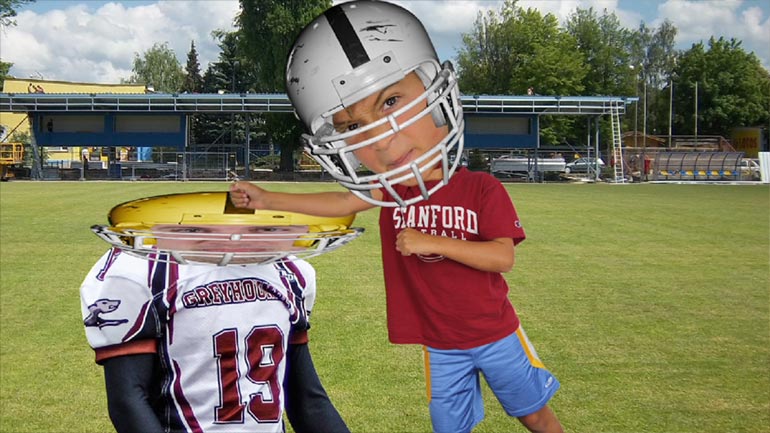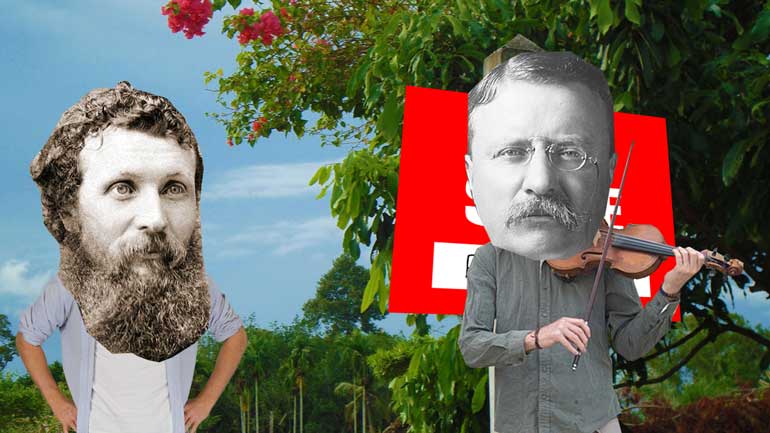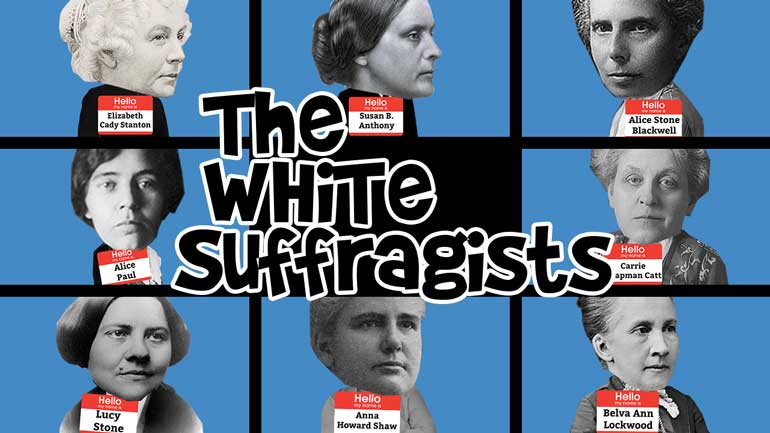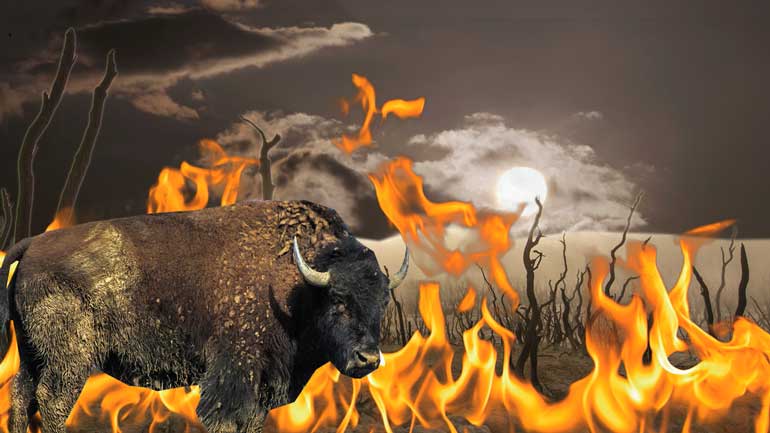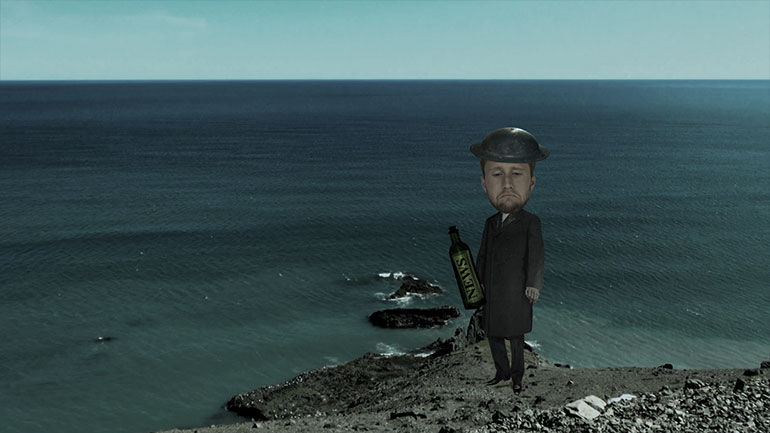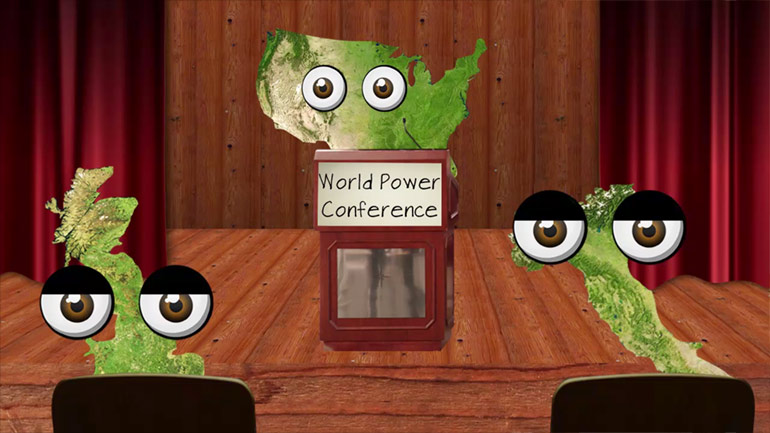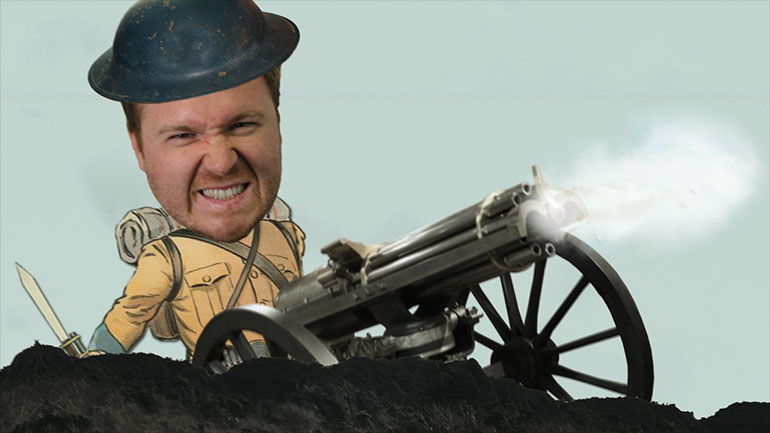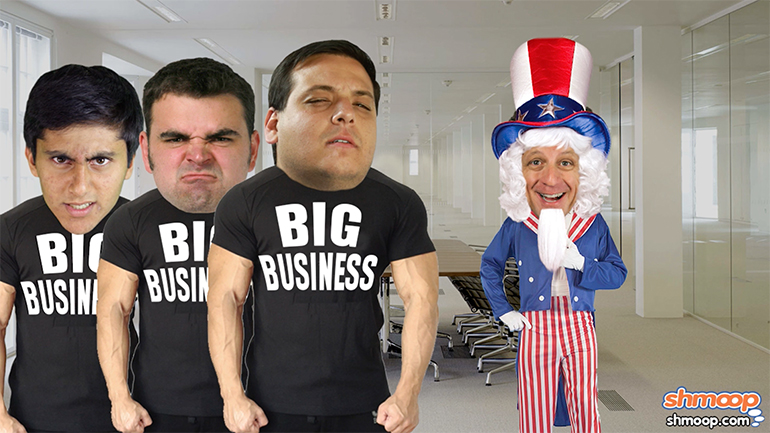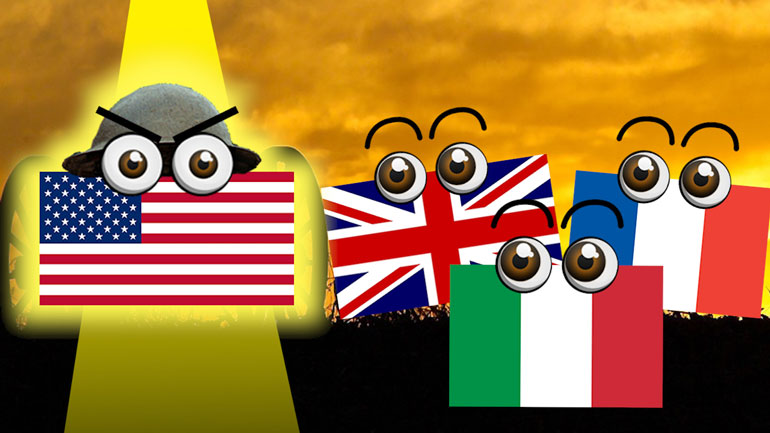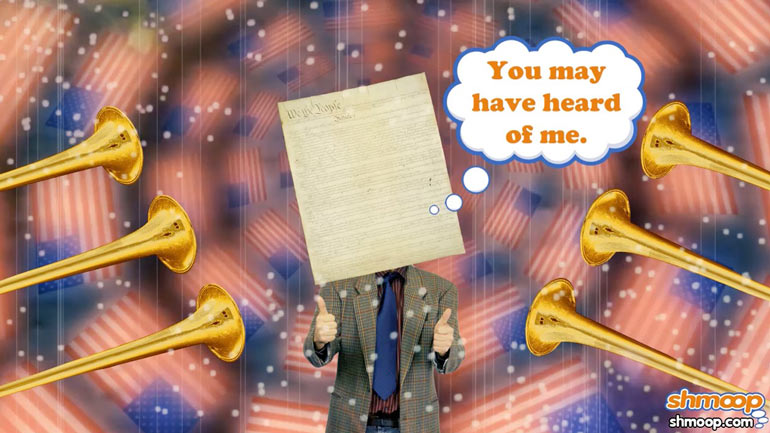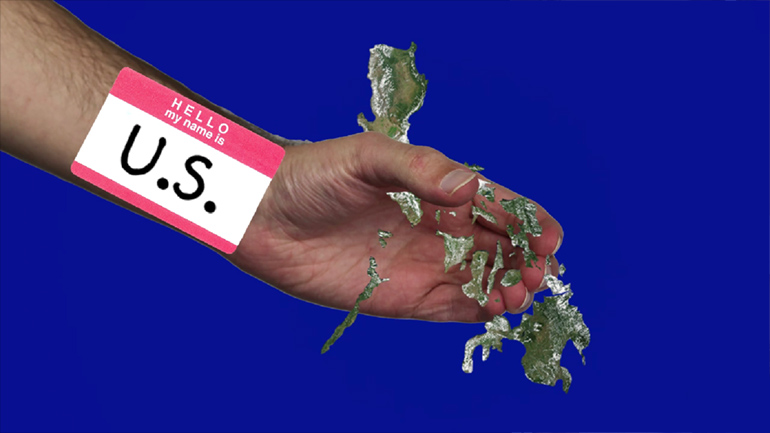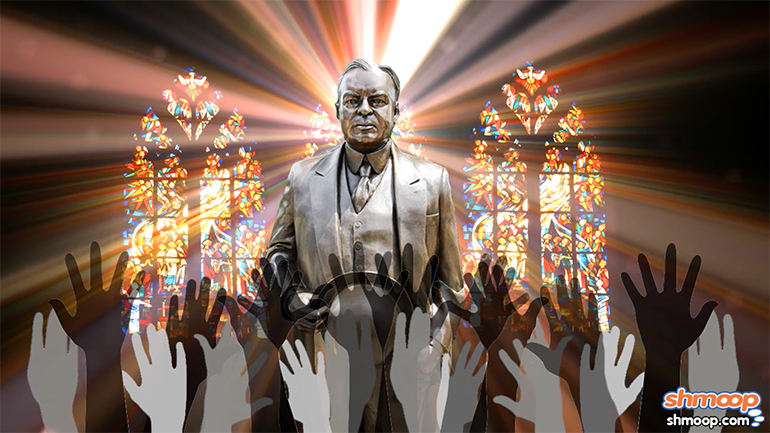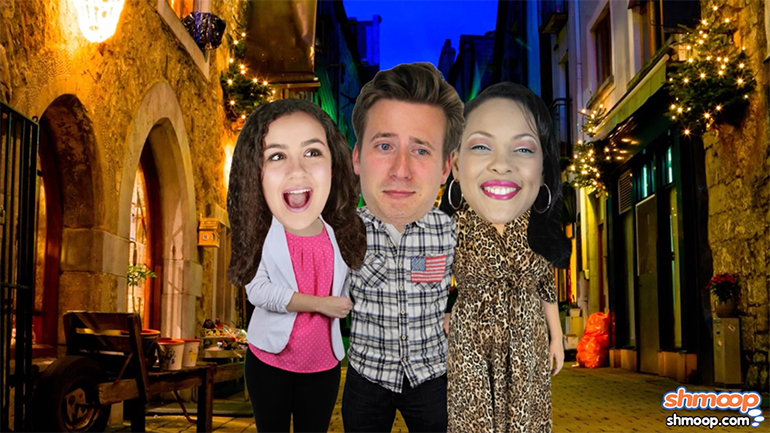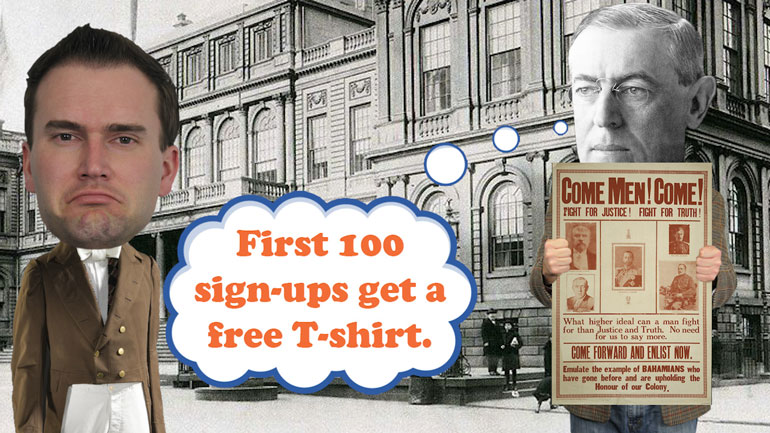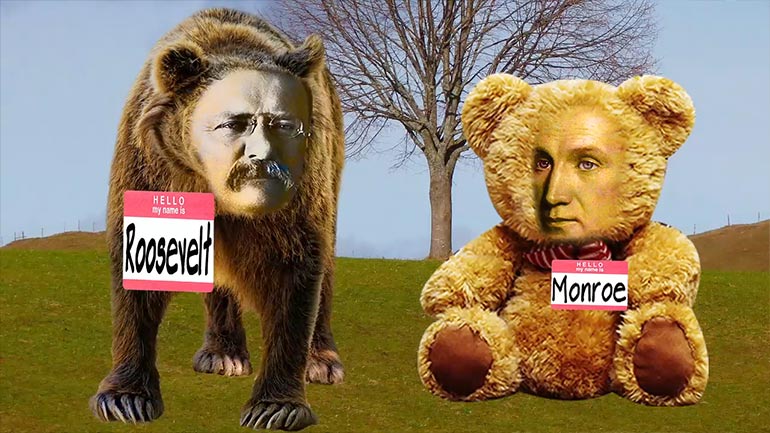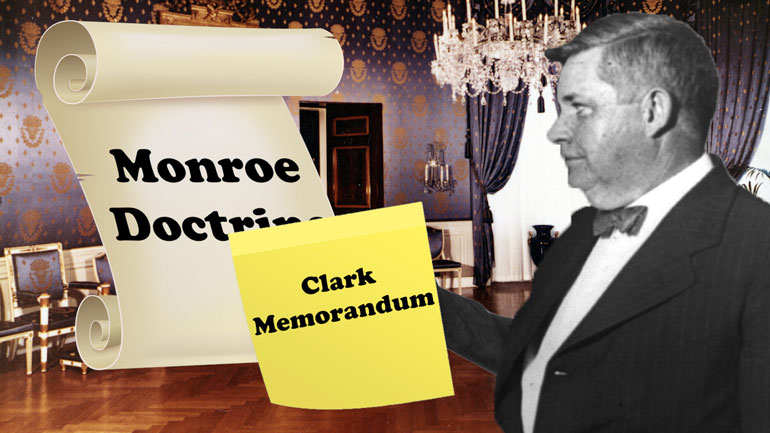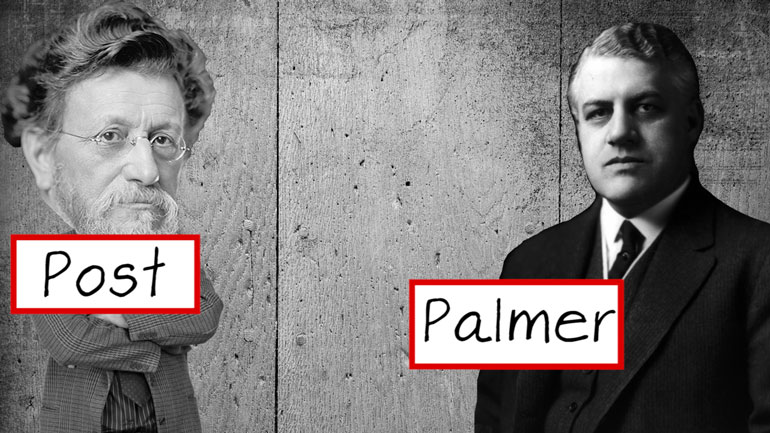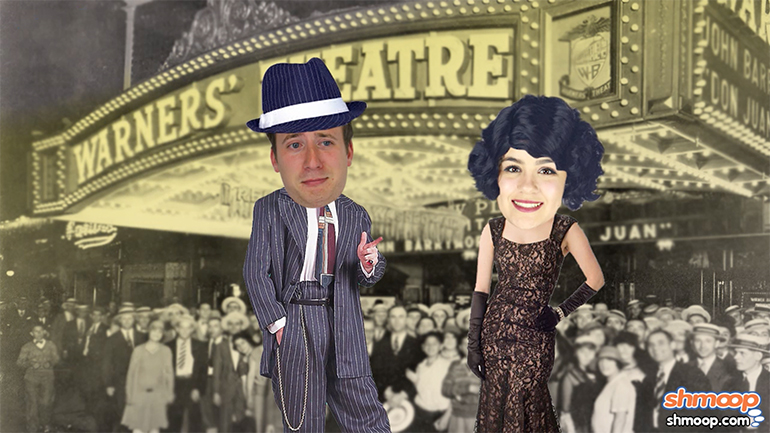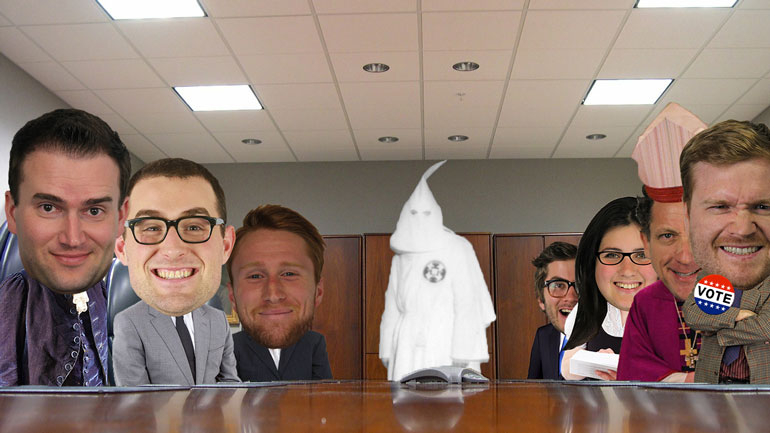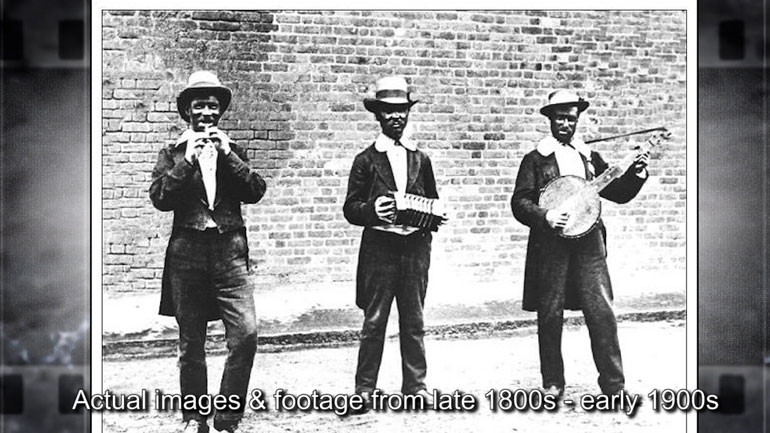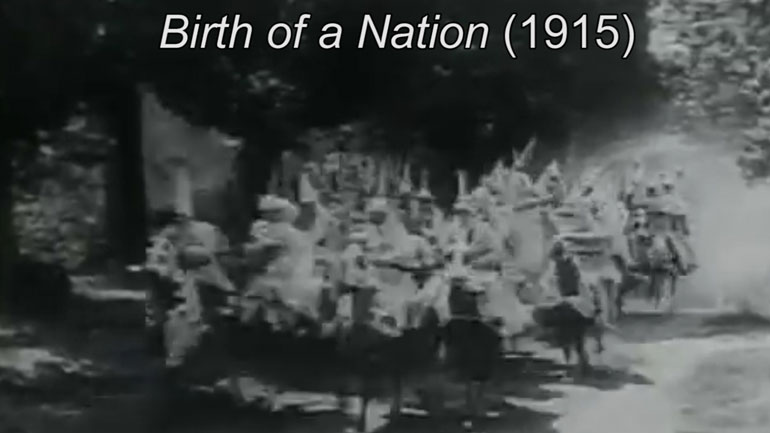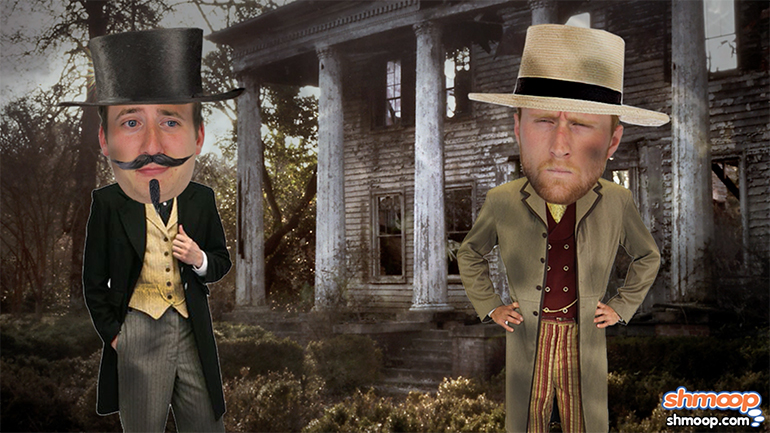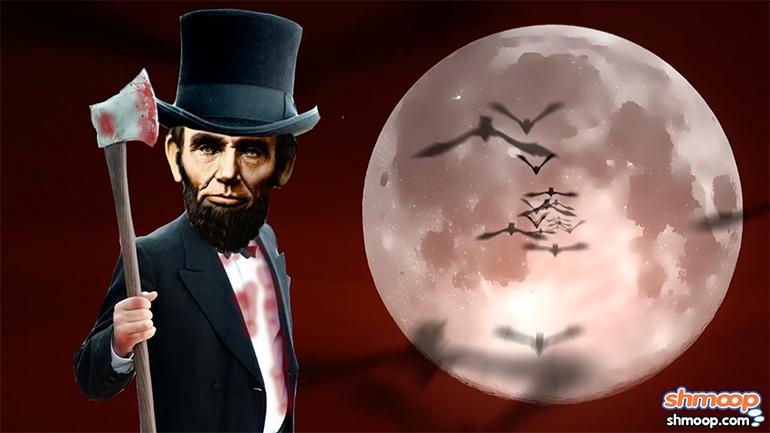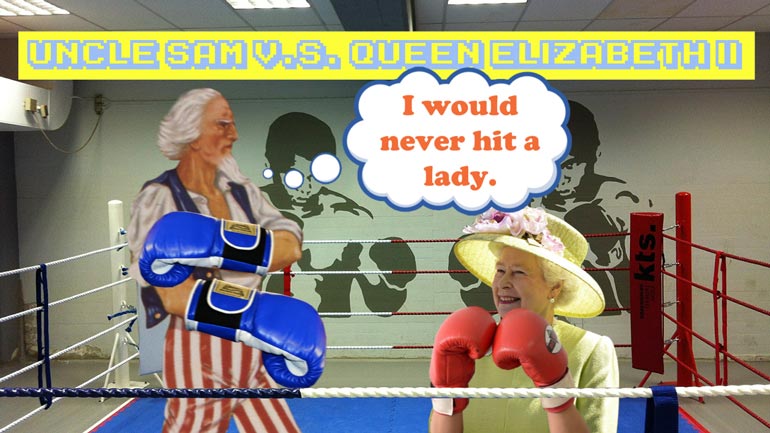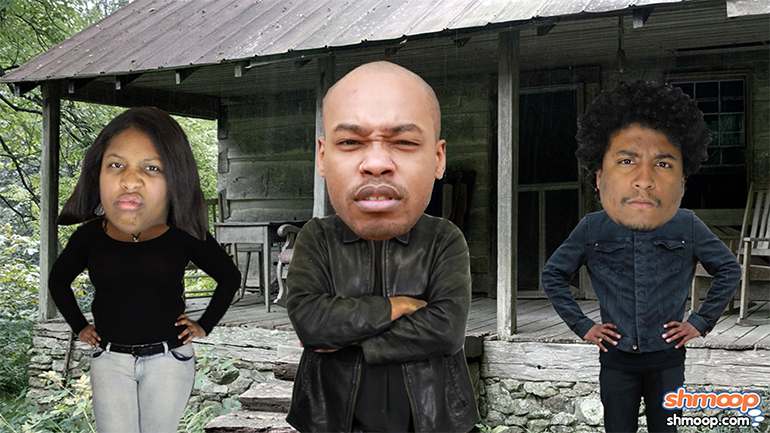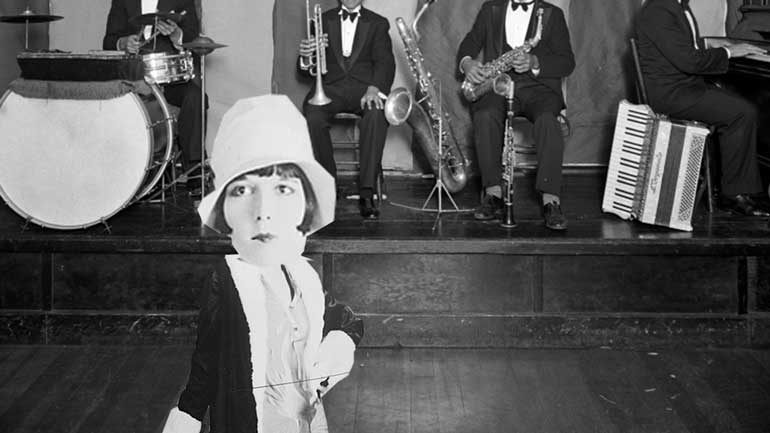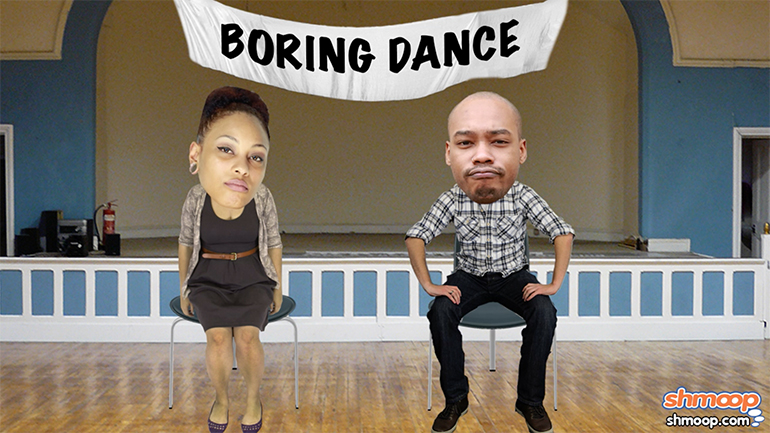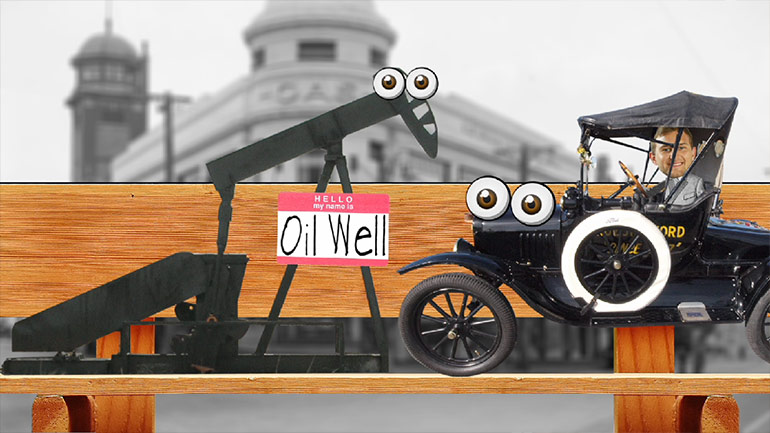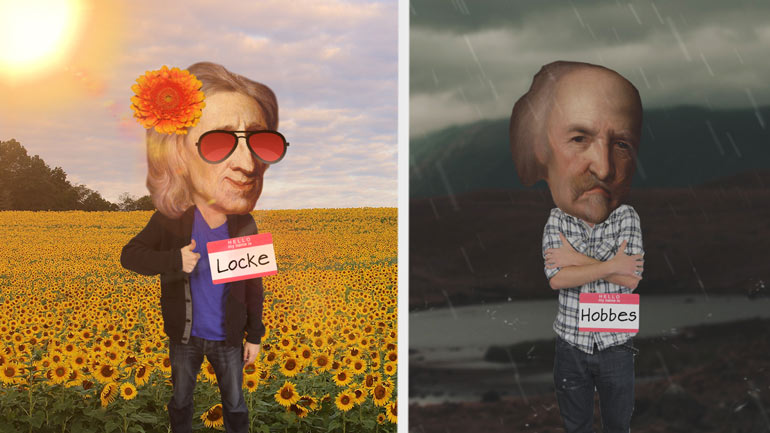ShmoopTube
Where Monty Python meets your 10th grade teacher.
Search Thousands of Shmoop Videos
U.S. History 1877-Present Videos 173 videos
Have you ever told one of your siblings to stop poking you, only to have them do something like hold their hand right in front of your face instead...
John D. Rockefeller. Greasy robber baron, or philanthropic saint? Why not both? Boy, that's a weird combination...
Today we'll learn about plans to assimilate the American Indian population after reconstruction. If you've ever seen Star Trek, you'll know that fo...
U.S. History 1877-Present 1: Primany and Secondary Sources 217 Views
Share It!
Description:
We've got your back when it comes to sourcing. And before we start, no, Uncle Moe's dreams about his past life as Queen Victoria won't cut it..for history at least.
Transcript
- 00:04
my source, my source my kingdom for a source while Shakespeare
- 00:07
may have taken artistic license with history in his place but you can't do [Shakespeare looking bored]
- 00:11
the same with your history homework i.e there's the rub for in that artistic
- 00:15
license what disapproving looks from your teacher may come instead you're [student puts her hand in the air]
- 00:20
going to make extensive use of sources as you research and write about the past
Full Transcript
- 00:24
what are sources? Oh so glad you asked no seriously we've been waiting for someone [Girl celebrating with a what is a source? banner]
- 00:28
asked us for years, we had a banner made and everything. Well primary
- 00:32
sources are original materials that were either created at the time of the [Holy Bible book in outer space]
- 00:36
historical event or at a later time by someone with first-hand knowledge of
- 00:40
said event a newspaper article published yesterday that talks about the Civil [two students assessing a civil war article]
- 00:44
War would not be a primary source because it was written 150 years after
- 00:48
the event but a letter written by a Civil War soldier to his ladylove back [Civil war soldier writing a letter]
- 00:52
home would be as primary as it gets, also might be a little sexy like ohh, i can see
- 00:57
your ankles in the picture, in that overly polite 19th century kind of [Civil war soldier looking at a picture of his wife]
- 01:01
way. Okay now let's talk about what isn't a primary source oh we might call
- 01:05
them secondary sources well not might that's what we're supposed to call them
- 01:09
secondary sources are anything written about the past that wasn't written at [old book covers floating in space]
- 01:13
the time or by someone with first-hand knowledge of the event so secondary
- 01:17
sources are usually texts that use a bunch of primary sources to put a spin
- 01:21
on the past which is most every book of history ever with all that spinning [a rollercoaster in motion]
- 01:26
let's hope history doesn't spew. Well, let's get back to primary sources here
- 01:30
because secondary are well, secondary to us now here are some of the
- 01:34
most important categories texts; a text is any primary source that's written down
- 01:38
it might be published like books or newspapers or there might be personal [ a stack of books and newspapers]
- 01:42
like letters or they might be super personal like that secret diary George
- 01:46
Washington kept under his bed which may or may not have contained zombie erotica [George Washington hiding a book under his bed and a green zombie appears]
- 01:50
fan fiction, who knew? next category images will predictably images any primary
- 01:55
source that is mostly visual paintings, drawings, photographs, posters, tapestries,
- 02:00
Edison's napkin doodles, cave wall paintings, you know that kind of stuff
- 02:04
next up recordings, well audio primary sources only go back to the mid 19th [a red indian using an old recording device]
- 02:09
century when the technology was invented but for the last hundred fifty years we
- 02:13
recordings of music, oral histories, interviews, radio programs bunch of other
- 02:17
stuff like that this kind of fits with visuals too but there's also old films [two men hitting each other with bags]
- 02:20
and videos like all those shows Grandparents watch on Netflix at least
- 02:24
the Grandparents who've you know figured out how to make Netflix work [Grandparents attempting to watch Netflix]
- 02:27
don't they have to call you like 18 times to set it up.. All right then
- 02:32
last of all objects this category includes just about everything else
- 02:35
clothing, toys, coins, tools and any other object that was made in this past [bowling ball hits a TV and explodes]
- 02:39
technically this counts the tuna casserole that's been in our break room fridge for
- 02:43
a month but everybody's too scared to delve into the history of that, for [woman looks into the fridge and sees an old tuna casserole and runs away]
- 02:47
good reason
Related Videos
Ever heard of a "living document"? They eat and breathe just like the rest of us! They even walk around on their own two legs. Okay, fine—maybe t...
If the Puritans had gotten their way, religion would play a much larger role in lawmaking these days. Want to know more? Watch the video for all th...
What happened between the creation of the Articles of Confederation and the ratification of the current U.S. Constitution? This video analyzes the...
The Modernists thought the world had a lot of problems, and they were intent on fixing them—or at least talking about fixing them. Unfortunately,...
This video explains Federalism and the quest for a fair balance between state and national power. It covers the progression and compromises of Fede...

